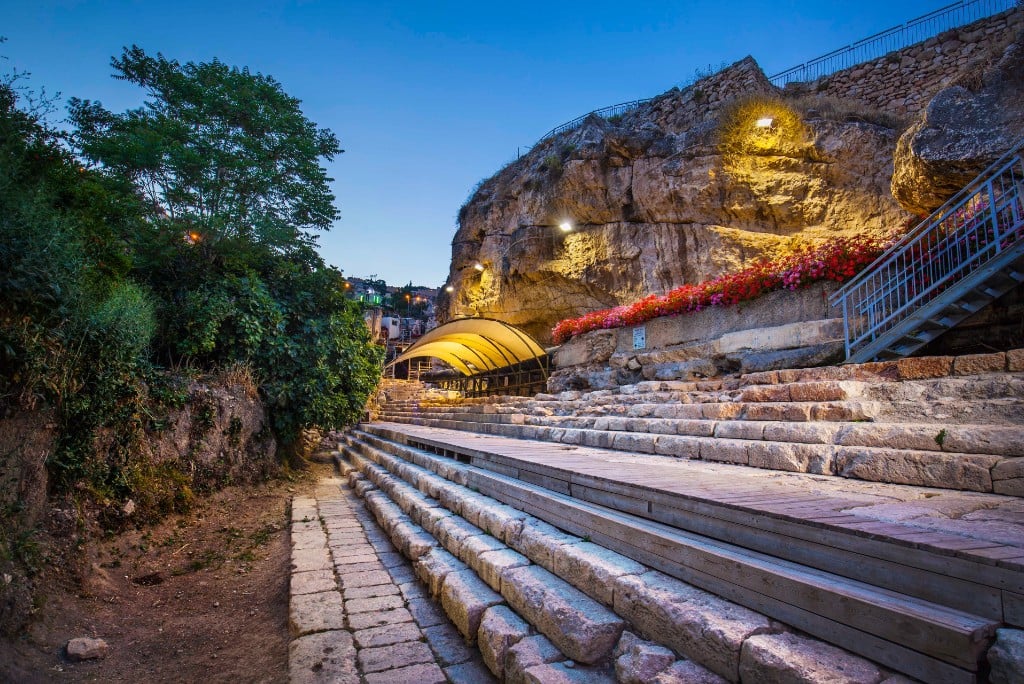The pool was constructed some 2,700 years ago during the reign of King Hezekiah and was part of the city’s water system.
By Pesach Benson, TPS
Israeli authorities announced plans to excavate Jerusalem’s Biblical Siloam Pool on Tuesday and open the site to the public.
The pool was constructed some 2,700 years ago during the reign of King Hezekiah and was part of the city’s water system. It lies within the area of the Jerusalem Walls National Park surrounding Jerusalem’s Old City.
Work at the Pool is being overseen by the Antiquities Authority, the Israel National Parks Authority, and the City of David Foundation. No timeline was specified.
The Pool of Siloam served as the reservoir for the waters of the Gihon Spring, which were diverted through an underground water tunnel during the First Temple period and is described in the Book of Kings II 20:20.
The Pool of Siloam was expanded during the Second Temple period, likely as a “mikva” or ritual bath for the crowds of pilgrims ascending to the Temple.
In 1880, the Siloam Inscription was uncovered in the water tunnel, just a few dozen meters from the Pool. The Inscription, written in ancient Hebrew script, records how the Gihon Spring’s water was diverted to the Pool during the reign of King Hezekiah. The Inscription is currently at the Istanbul Archaeology Museum. Turkey has rejected Israeli efforts to have the Inscription returned to Jerusalem.
In 2004, during infrastructure works carried out by the Hagihon water company, some of the Pool’s steps were exposed. As a result, the Israeli Antiquities Authority began a systematic excavation, exposing the Pool’s northern perimeter and a portion of its eastern perimeter.
“The Pool of Siloam in the City of David National Park in Jerusalem, is a site of historic, national and international significance,” said Jerusalem Mayor Moshe Lion. “After many years of anticipation, we will soon merit being able to uncover this important site and make it accessible to the millions of visitors visiting Jerusalem each year.”
The Jerusalem Walls National Park includes the City of David tourism and archaeological site, the Tower of David, Mount Zion and King David’s Tomb, as well as the Mount Zion Cemetery.

